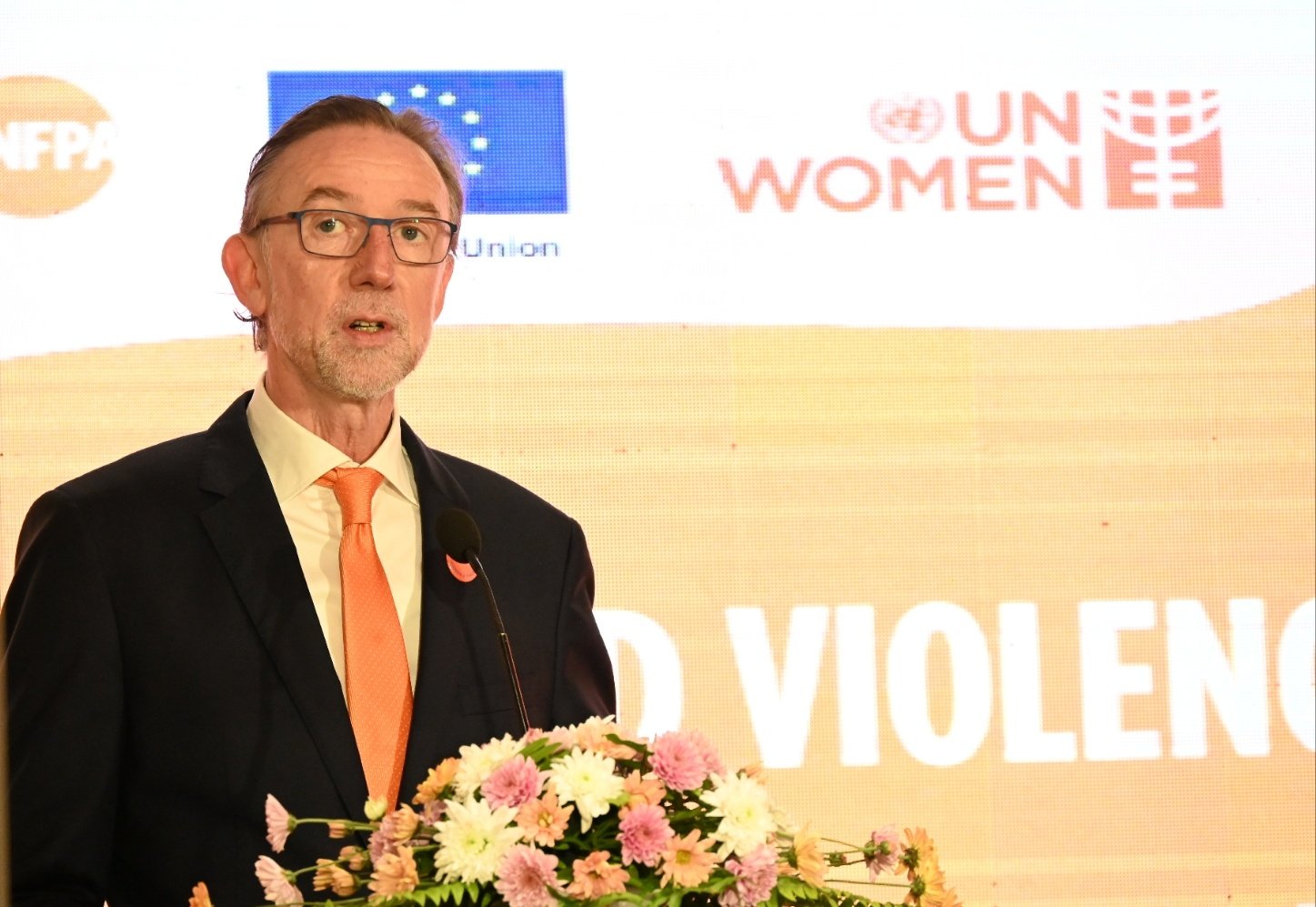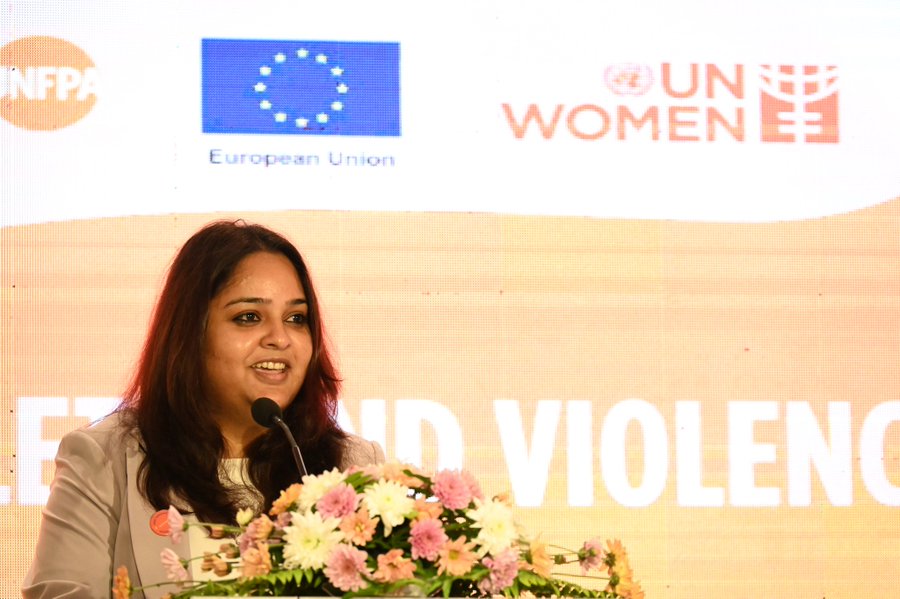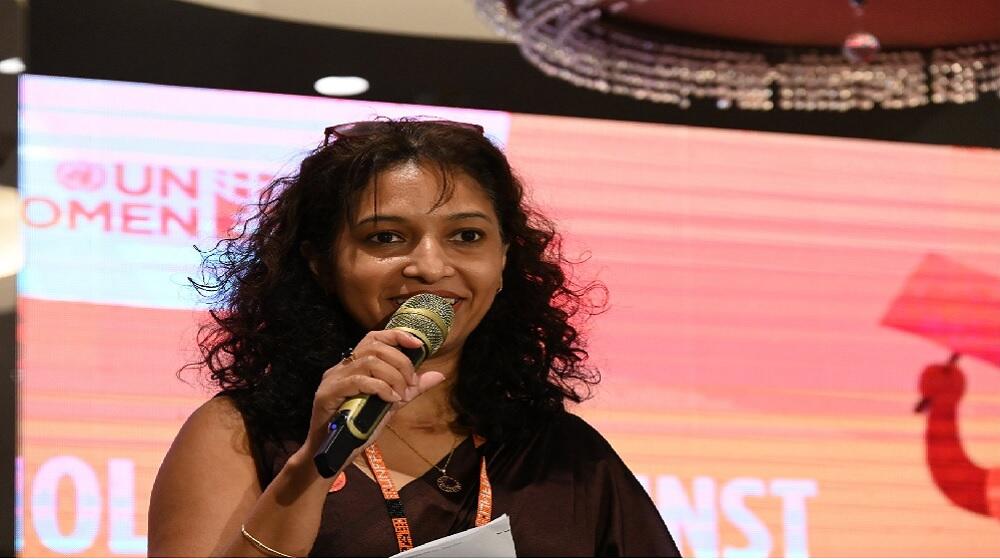Women’s equal participation and leadership in political and public life are essential to achieving the 2030 Agenda for Sustainable Development. However, data indicates that women are underrepresented at all levels of decision-making worldwide and that achieving gender parity in political life is far off.
Globally, only six countries have 50 per cent or more women in parliament. In Sri Lanka as well, women’s representation and participation in politics remain abysmally low.
- At national levels of government, there is only one woman in the Cabinet of Ministers
- Only 5.3 per cent of women are in Parliament
- The representation of women legislators at the national level has never exceeded 7 per cent throughout Sri Lanka’s electoral history since 1931.
In commemoration of the 16 days of activism against gender-based violence, UN Women, UNFPA and the EU in Sri Lanka have organised a campaign on ending violence against women in politics with the broader objective of:
- Raising awareness about the prevalence, impact, and types of violence against women in politics
- Engaging young women to advocate for stronger measures to end violence against women in politics.
Key Activities -
The half-day dialogue in Colombo discussed how violence against women plays into women’s leadership and political participation, followed by a facilitated discussion on the demands and systemic change expected by young women to navigate the political arena safely and effectively.




